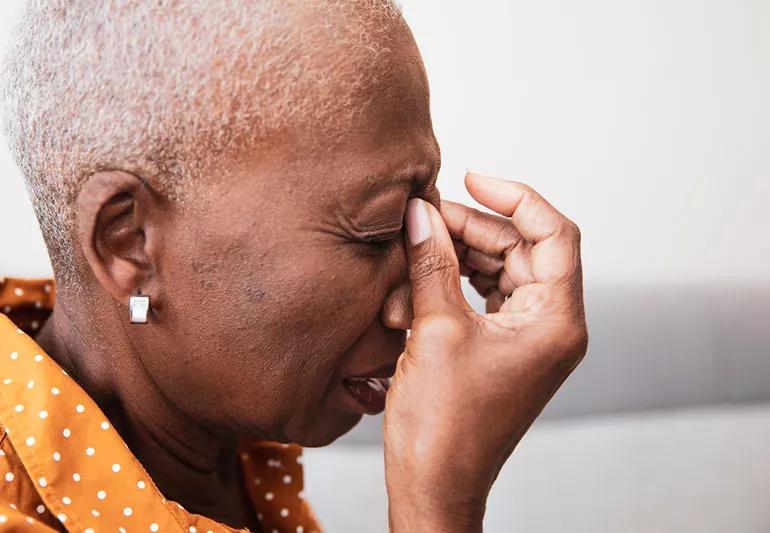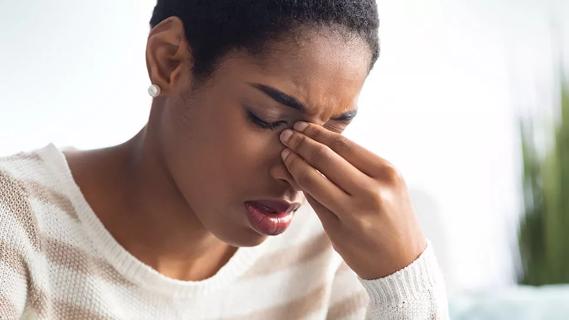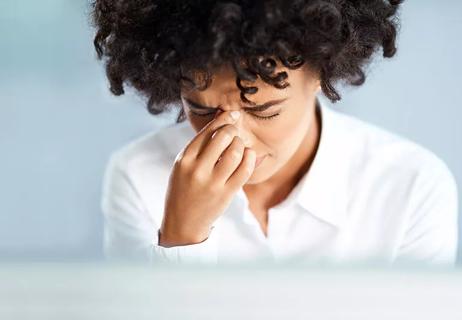Some things you can do to ease symptoms

Nasal congestion and swelling, facial pressure, pain, fever, too much mucus. Ugh. It’s probably another sinus infection. Or is it? And is your infection caused by a virus or bacteria — and does it really matter?
Advertisement
Cleveland Clinic is a non-profit academic medical center. Advertising on our site helps support our mission. We do not endorse non-Cleveland Clinic products or services. Policy
It does, says otolaryngologist Raj Sindwani, MD. Doctors treat viral and bacterial sinus infections very differently. Here’s what you need to know about both kinds of infections and how to treat them.
Video content: This video is available to watch online.
View video online (https://cdnapisec.kaltura.com/p/2207941/sp/220794100/playManifest/entryId/1_ftaopuet/flavorId/1_5f3sgelj/format/url/protocol/https/a.mp4)
Is it a bacterial or viral infection? Learn how to tell the difference and what to do about each so you can feel better faster.
Sinusitis happens when your sinuses — the normally air-filled pockets in your face — become inflamed and blocked. Most sinus infections are viral. How can you tell whether your infection is viral or bacterial based on your symptoms?
“You can’t,” says Dr. Sindwani.
“Symptoms like bad breath, yellow or green mucus, fever and headache are not reliable signs of a bacterial infection,” he says. “They can occur with viral infections, too. Even your doctor can’t tell if your infection is viral or bacterial based solely on symptoms or an exam.”
Instead, your doctor looks largely at symptom duration to determine the source of your infection. A viral sinus infection will usually start to improve after five to seven days. A bacterial sinus infection will often persist for seven to 10 days or longer, and may actually worsen after seven days.
Whether your sinus infection turns out to be viral or bacterial, you can help to ease your symptoms early on with supportive sinus care:
Advertisement
If your symptoms aren’t improving after one week, it’s important to see your doctor. If a bacterial infection is suspected, you’ll probably need to take an antibiotic to clear up the infection and prevent further complications.
“If your infections occur more frequently, and your doctor really wants to establish if they are bacterial or viral, your Otolaryngologist or ear, nose and throat doctor can sample the snot from your nose when you’re infected and send it to a laboratory to know for sure.
Note: Antibiotics won’t help a viral infection, and taking an antibiotic unnecessarily can do more harm than good. You risk possible side effects and increase your chances of developing antibiotic resistance, which can make future infections harder to treat, says Dr. Sindwani. So it’s important to wait and see how long your symptoms last.
If you’re suffering from chronic sinusitis (nasal congestion, drainage, facial pain/pressure, and a decreased sense of smell lasting 12 weeks or longer) or you are getting frequent sinus infections you should see your doctor, says Dr. Sindwani.
Your doctor will swab your nose to collect mucus. Culturing it in a laboratory will reveal which type of bacteria is causing the infection so the right antibiotic can be prescribed.
Treat early sinus infection symptoms with rest, hydration and over-the-counter sprays and decongestants. But don’t look for an antibiotic unless your illness extends beyond a week, he says. Then check in with your doctor for a prescription and let him or her know if your condition worsens.
Advertisement
Learn more about our editorial process.
Advertisement

Give it seven to 10 days, but if your symptoms linger or get worse, it’s time to see a healthcare provider

A gentle touch in all the right places may help drain your sinuses

From nasal sprays to neti pots, these home remedies can help relieve your symptoms

There's hope for chronic nasal and sinus problems that don't put you in the mood

How to deal with this common condition

This spinning sensation is a symptom, not a condition, so you need to know what’s causing it before you can treat it

If your nose is constantly running, it could be allergies, chronic sinusitis, nasal polyps or other concerns

Sinus infections tend to last longer and include symptoms like facial pressure and discolored mucus

Wearing a scarf, adjusting your outdoor activities and following your asthma treatment plan can help limit breathing problems

Your diet in the weeks, days and hours ahead of your race can power you to the finish line

When someone guilt trips you, they’re using emotionally manipulative behavior to try to get you to act a certain way